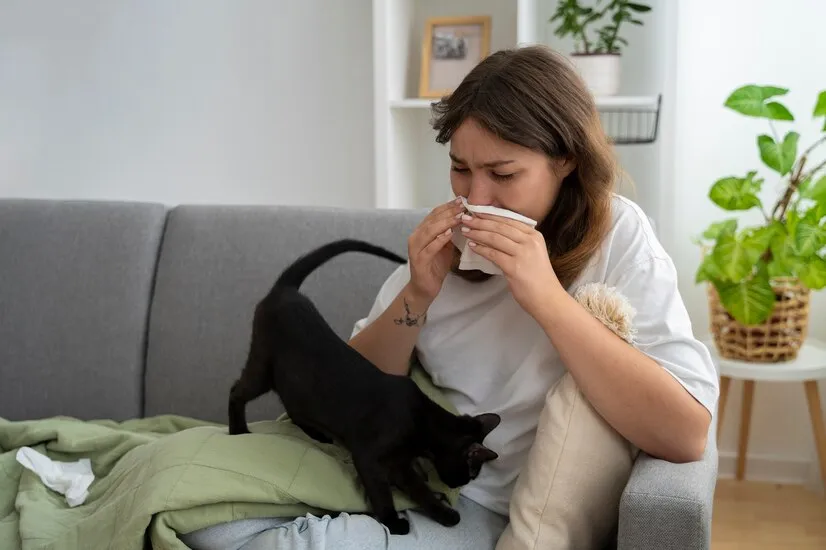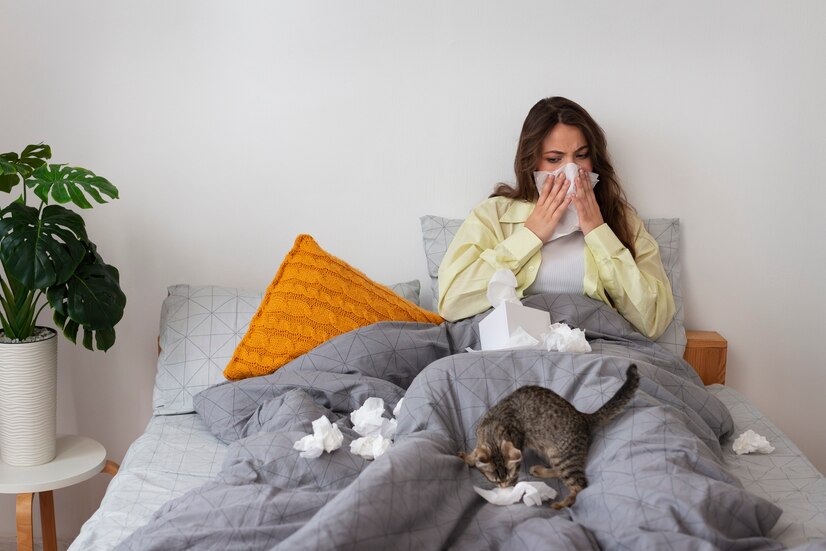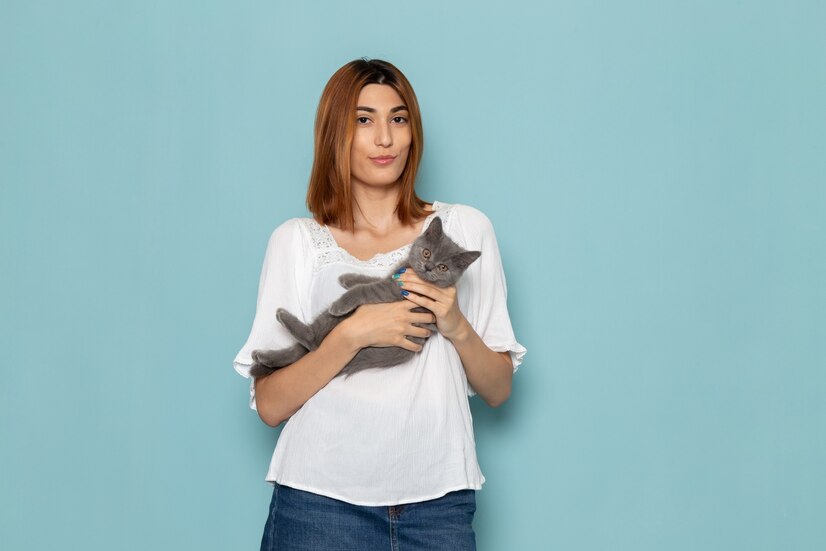
Cats are often seen as the perfect companions—independent yet affectionate, and playful. Their movements and purrs can easily win over hearts. But what happens when you adore these creatures, yet find yourself feeling strange after spending time with them? If you've ever wondered whether you're truly a ‘cat person,’ it might not be your love for felines at fault—it could be allergies.
Table of Content:-
We asked our expert Dr Devendra Kumar Singh, Senior Consultant & HOD, Respiratory Medicine, ShardaCare - Healthcity, and he replied “Yes, you can absolutely love cats while still experiencing allergic reactions. Unfortunately, it’s a common situation many cat lovers face.”
Allergies Triggered By Cat Contact
Here are a few signs that you might not be as much of a ‘cat person’ as you think—especially when it comes to allergens.
1. Sneezing And Nasal Congestion
One of the most obvious signs of a cat allergy is frequent sneezing and a stuffy nose. After petting, hugging, or being in a room with a cat, your body might react to the proteins in their skin cells, saliva, and urine. These proteins, primarily found in a cat’s dander (tiny flakes of skin), can easily travel through the air, triggering allergic reactions. If your sneezing fits and runny nose are persistent after time spent with a cat, it’s likely you’re allergic.

Also Read: Why Do You Cough After Eating? Here’s What It Could Mean
2. Itchy, Watery Eyes
Do your eyes become irritated, red, or itchy after being around a cat? Itchy, watery eyes are classic symptoms of an allergic reaction. For cat allergy sufferers, the allergens can easily come into contact with the eyes, causing them to water or swell. This reaction may be mild or severe, depending on your sensitivity.
3. Coughing/ Wheezing
If you start coughing or experience wheezing after exposure to a cat, your allergy could be triggering asthma-like symptoms. Cats' dander can be a potent irritant to your airways, leading to bronchial inflammation. Those who are sensitive may find their breathing becomes laboured or difficult. If you don’t already have asthma, this might be a red flag of a cat allergy.
4. Skin Reactions (Hives, Rash, Or Redness)
Contact with a cat’s fur or saliva can lead to skin reactions such as hives, redness, or rashes. This is particularly common in people who have direct contact with cats (such as petting them or being licked). The proteins in cat saliva and fur can easily cause localised irritation on the skin. If your skin becomes inflamed or you develop bumps after physical contact, it could be a sign that your body is reacting to the allergens.

Also Read: Real-Life 'Vampire': Rare Disorder Makes Garlic Deadly for US Woman
5. Flare-Ups Of Other Allergies
If you already suffer from other allergies, such as pollen or dust mite sensitivity, your cat allergies may worsen these reactions. Many people find that their existing allergic rhinitis or asthma gets aggravated by exposure to cats, especially in spaces with poor ventilation or in households with multiple pets. If you’ve noticed a sudden uptick in your other allergy symptoms (like sinus pressure or tightness in the chest) after being around cats, it could be a sign that your body is overwhelmed by more allergens than it can handle.
6. Feeling Tired Or Unwell
At times allergies don’t present themselves in overt ways like sneezing or itchy eyes. Some people feel sluggish, fatigued, or just ‘off’ after being around cats, especially when they’ve been in close contact. If you’re always drained or suffer from headaches after spending time in a room with a cat, it could be an underlying sign of an allergy to their dander.
What Can You Do?
If you recognise these signs of pet allergies, it might be time to reconsider your relationship with cats or take proactive steps to manage the condition. Here are a few options:
- Consult an allergist
- Avoid direct contact
- Keep your environment clean
- Consider medication
Bottomline
Loving cats doesn’t always mean you’re immune to allergies. If you find yourself experiencing common allergic symptoms like sneezing, itching, or trouble breathing after being around cats, it might be time to consider that your body is trying to tell you something. Don’t worry, though—you can still enjoy the company of cats in ways that work with your body’s needs.
Also watch this video
How we keep this article up to date:
We work with experts and keep a close eye on the latest in health and wellness. Whenever there is a new research or helpful information, we update our articles with accurate and useful advice.
Current Version